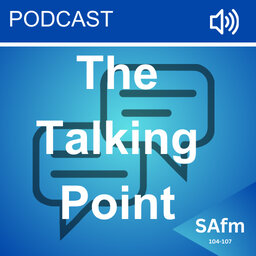US-SA Bill: the 118th Review that may set relations for the next 5 years
Earlier this year, the US House of Representatives’ Committee on Foreign Affairs passed a review of bilateral relations with South Africa. This review takes place less than 12 months before South Africa hears if their status in AGOA is renewed. This follows questions that have been raised surrounding Pretoria’s non-aligned stance in their foreign policy on Palestine and Ukraine. There have also been questions surrounding their closer relations with China, Russia and Iran. Some Republican members even went as far as calling for the Bill to cut off funding from agreements such as PEPFAR that provides essential healthcare interventions over the past 20 years. If the bill is passed, the US administration would have to determine whether South Africa has undermined foreign policy and national security interests.
Meanwhile, a bipartisan group of senators has passed its own bill to renew AGOA until 2041. One of the new provisions that has emerged is that the US would allow African countries to have their status reviewed after 5 years of recognition as a high-income country. While Minister of International Relations, Naledi Pandor has been speaking to officials to prevent punitive measures to be taken, Pretoria believes that Washington may have as much to lose if this Bill is passed. Given both nations are hosting elections in the coming months, we unpack the implications of this review and the optics given that the AGOA Summit of 2023 presented signs of the two nations’ relations being on the mend.
Guest: Arina Muresan - Senior Researcher and Project Manager at the Institute of Global Dialogue
Guest: Prof. David Monyae - Associate Professor of Political Science and International Relations & Director for the Centre for Africa-China Studies (CACS) at the University of Johannesburg
Guest (studio): Leslie Dikeni - Author (Habitat and Struggle) & Urban Sociologist
In 1 playlist(s)
The Talking Point
Newsmakers and Guest Experts offer their insights and perspectives into the national and global disc…Social links
Recent clips

South Africa returns from the AU Summit
32:14

Personal Finance with Bryan Hirsch
42:29

SANDF deployment to Western Cape and Gauteng
39:24
 The Talking Point
The Talking Point